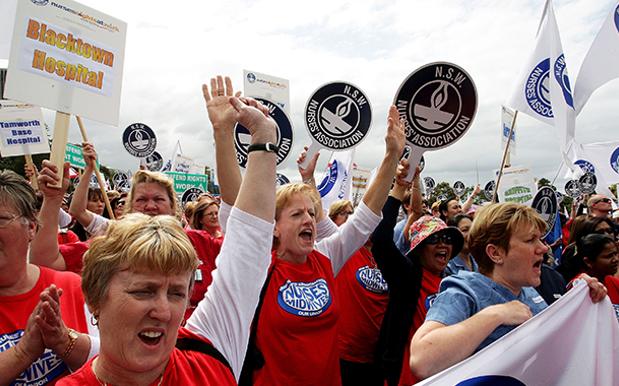
2015 is going to be an extremely active for the Industrial Relations debate and the Union movement. The Abbott Government has long hung its hat – even before being elected – on assessing and investigating the current Industrial Relations legislation, with an eye towards improving conditions for businesses and business operators. But it’s from today that the fight really begins, with the arrival of the Productivity Commission‘s “Five Issues” paper on workplace reform, signalling the beginning of what’s likely to be a politically volatile process.
One of the core issues that Tony Abbott sailed into Canberra on was the promise to the business sector to conduct (at least preliminary) work into workplace reform and the working conditions of Australians – which the business sector asserts continually to be untenable.
Following a year in power with no activity on that front, the sector is now putting pressure on the Abbott Government to act on his word.
Today’s arrival of the Five Issues paper signifies exactly that. And for the average Australian worker, it’s not exactly the sunniest news you’ll hear.
Among the issues in the sights of the inquest are the minimum wage, penalty rates, workplace flexibility, enterprise bargaining, individual agreements between employers and employees, and protective legislation like anti-bullying and unfair dismissal laws.
Though it remains in the extremely early stages of the commission, suggestions are being made that the ideal outcome, as far as the Government is concerned, is a set of recommendations that stipulate the minimum wage being adjusted on a sliding scale according to the needs of different states, as well as employers being able to set their own penalty rates – which would effective abolish mandatory penalty pay for late nights, weekends and public holidays.
The Unions, understandably, are white-hot pissed off about the whole process, and have made their intentions very clear to attack any attempted workplace reform with full force. The Abbott Government is acutely aware of this, and is treading carefully due to the knowledge that a highly funded, all-out “WorkChoices 2.0” advertising assault could be unleashed by the Unions at the drop of a hat.
In this sense, the Government is – at least outwardly, and for the moment – approaching the issue with caution. Employment Minister Eric Abetz has stated that no reform recommendations will be adopted during this term of Government, and any proposed workplace reform will be taken into the 2016 Federal Election. Internally, the Government is wary that any misstep or recklessly implemented workplace reform scheme is political poison, and would irreparably damage their standing with voters.
But conversely, the Liberal Party’s traditionally close relationship with the business sector all-but ensures the commission will turn in at least some recommendations that favour the industry’s interests over that of the worker’s.
As the Government cautiously proceeds with reviewing the manner in which you get paid for the work you put in, expect a heck of a lot of noise from the Unions to be made. After all, the last time workplace reform went awry for an incumbent Liberal Government, it cost them 22 seats at the election – including the Prime Minister’s.
Photo: Lisa Maree Williams via Getty Images.
via SMH.



